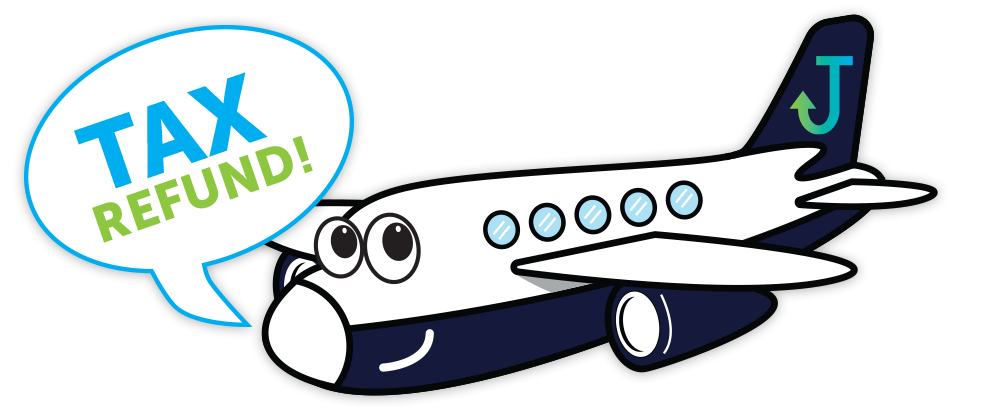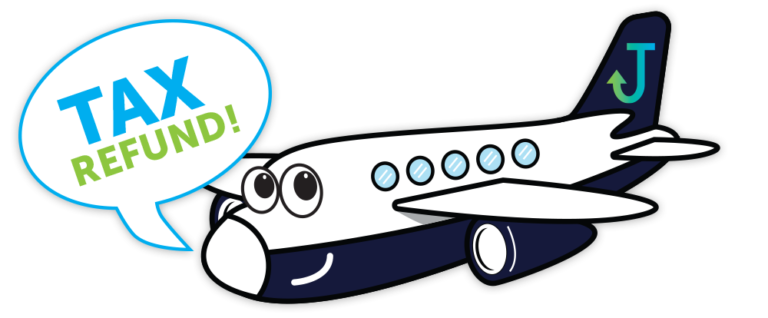Your Local Tax Accountant
No return too small Specialising in FIFO, Mining, Commercial Fishing/Share of Catch, Construction & Tradies
Conveniently located in Oxenford (Gold Coast). We can do Return via email/phone or in person to cater your busy lifestyle. Pay one fee for your return and then give us a call anytime during the year for no charge. We put the client first and will explain your Tax in language that you understand and take the stress out of Tax.

Small Business Tax Accountant

Special Offer: Free Tax Health check

Specialising in FIFI, Mining, Construction, Commercial Fishing/Share of Catch & Tradesman Tax Returns

We cater to all occupations
Our Core values
We value the client above all else and we will act responsibly to get the return lodged and claim all the deduction that you are entitled.
We will alway act within the law and to minimise your tax ethically and responsibly.

hard work

ethical

effective

efficient

on time

team work
FAQ's
Small Business Tax Return Questions
As a business owner, you can claim tax deductions for expenses directly related to generating your assessable income, but three golden rules must be kept in mind.
- Firstly, the expenses must be solely for business purposes, and claiming illegitimate expenses can lead to fines.
- Secondly, if an expense is used for both business and personal purposes, only the portion related to business activities can be claimed.
- Lastly, proper documentation, like receipts and invoices, is essential to substantiate deductions.
Similar rules apply for employees seeking deductions. Personal expenditure must be incurred and not reimbursed, the expenses must directly relate to earning income, and maintaining records is crucial.
Jayton Joseph Accountant understands deductions intricacies and can assist in optimizing entitlements.
When running your business from home, you can claim the portion of expenses directly related to your business activities.
Distinguishing between running expenses (e.g., electricity, gas, stationery) and occupancy expenses (e.g., mortgage interest, council rates) is essential. Both can be claimed if you have an exclusive "place of business" within your home. If not, you can still claim a portion of running expenses. However, claiming occupancy expenses may not be possible if PSI rules apply to your business income. Capital gains tax may also apply when selling your property.
At Jayton Joseph, we offer expert guidance to maximize your eligible deductions for home-based business expenses. Contact us to discuss your unique circumstances.
Absolutely, there are specific rules that enable you to claim deductions gradually for the expenses incurred on renovations or improvements made to transform a section of your home into a business area. It’s important to note that if you do convert your home into a place of business, it may have implications on your eligibility for the main residence exemption for capital gains tax (CGT) when you sell your home.
To gain a comprehensive understanding of the deductions you may be entitled to claim, the essential records you should maintain, and the potential impact on your eligibility for the main residence exemption, I recommend visiting the official website of the Australian Taxation Office (ATO) at ato.gov.au. Simply search for “capital works deductions” to access the relevant information and guidance.
Maintaining proper records is crucial, and while relying on the old “throw the receipts in the glove box” approach may have sufficed in the past, I highly recommend adopting digital record-keeping methods. This offers numerous advantages, and fortunately, there are various options available to suit your needs. Consider utilizing record-keeping software, which allows you to securely send, receive, and store Invoices, simplifying both your invoicing process and record-keeping tasks.
If you’re an employee or a sales trader, you’ll find the myDeductions tool within the ATO app to be particularly useful. It enables you to effortlessly capture and organize your tax records on the go by simply snapping a photo. You can even directly upload your records to your tax return or share them with your registered tax agent. This feature truly saves you valuable time. However, always remember to back up your digital records to protect them from potential risks such as floods, fires, or theft.
In general, it is advisable to retain your records for a period of five years from the date your tax return is lodged. Additionally, the ATO app offers various other helpful features and tools that can assist you in staying on top of your tax and super obligations.
For further information and detailed guidance on digital record-keeping practices, I recommend visiting the official website of the Australian Taxation Office (ATO) at ato.gov.au. Simply search for “digital record keeping” to access valuable resources and insights.
If more than half of the income you’ve received from a contract is directly attributable to your personal efforts or skills, rather than derived from the use of assets, the sale of goods, or a business structure, then it falls under the classification of personal services income (PSI). This holds true across various industries, trades, and professions, including roles such as construction workers, engineers, financial professionals, or IT consultants.
The PSI rules serve to maintain a fair and level playing field for individuals. They achieve this by preventing the diversion or splitting of PSI with other individuals or entities in order to reduce tax obligations. These rules can have an impact on the deductions you can claim and how you report your PSI in your tax return. Therefore, if you earn PSI, it is crucial to assess whether these rules are applicable to your circumstances.
For a comprehensive understanding of personal services income and its implications, I recommend visiting the official website of the Australian Taxation Office (ATO) at ato.gov.au. Simply search for ‘personal services income’ to access detailed information and resources. Alternatively, you can also seek guidance from your registered tax agent or consult with your local industry association for further assistance.
If you’re eligible to claim working-from-home expenses, you have two methods available to calculate your deduction: the revised fixed-rate method or the actual cost method.
The revised fixed-rate method offers a straightforward approach, allowing you to claim 67 cents per hour worked from home. This rate covers various expenses, including electricity, gas, stationery, computer consumables, internet, and phone usage. Additionally, you can separately claim deductions for expenses not covered by the hourly rate, such as the decline in value of depreciating assets like laptops or office furniture.
On the other hand, the actual cost method provides the flexibility to claim deductions based on the actual expenses you incur due to working from home. This method may involve a more detailed calculation process but offers the potential for higher deductions.
You have the freedom to choose the method that yields the best outcome for your situation, as long as you meet the eligibility criteria and fulfill the necessary record-keeping requirements.
To determine which method is most suitable for your circumstances, I recommend visiting the official website of the Australian Taxation Office (ATO) at ato.gov.au/home. There, you’ll find detailed information and guidance on choosing the right method for your working-from-home deductions.
The records you need to maintain will vary depending on the method you choose to calculate your working-from-home expenses.
If you opt for the revised fixed-rate method, it’s essential to keep a record that shows the total number of hours you worked from home throughout the income year. This can be done using a diary, timesheet, roster, or a similar document. However, please note that a transitional arrangement is in place for the period from July 1, 2022, to February 28, 2023. During this time, you can maintain a representative record, such as a diary, for a four-week period. Beyond that, you’ll need to keep a bill or invoice for each expense covered by the revised fixed rate (e.g., phone or internet bill) and records for any additional expenses claimed separately. If you’re claiming the decline in value of depreciating assets, it’s important to keep records of the asset purchase and evidence of your work-related usage.
On the other hand, the actual cost method entails more detailed calculations and record-keeping requirements. For instance, you’ll need to have information and records regarding the cost per unit of electricity and the average units consumed per hour.
To gain a deeper understanding of the specific records you should maintain, I recommend visiting the official website of the Australian Taxation Office (ATO) at ato.gov.au/home. There, you’ll find comprehensive information on the record-keeping requirements associated with different methods of calculating working-from-home expenses.
As an employee, you have the opportunity to claim deductions for tools or equipment used for work purposes. The deductibility of these items depends on their cost:
- Tools or equipment that cost more than $300: In this case, you can claim a deduction for the cost over a number of years through depreciation. This means you can spread out the deduction over the asset’s effective life.
- Tools or equipment that cost $300 or less: For items falling into this category, you can claim an immediate deduction for the entire cost of the work product. This allows you to deduct the full amount in the same year you purchased the item.
When it comes to buying depreciable assets for your business, such as tools or machinery, temporary full expensing rules come into play. These rules allow you to immediately deduct the business portion of the asset’s cost, provided you meet the eligibility criteria. The rules apply to new depreciable assets and improvements made to existing eligible assets, which must be first used or installed by June 30, 2023. Small businesses can also take advantage of this provision for second-hand assets.
Eligible assets include a wide range of items used in the operation of a business, such as worksite tools like drills, ladders, and toolboxes; equipment like fridges or grills; as well as shelving and storage solutions.
For more detailed information on these matters, I recommend visiting the official website of the Australian Taxation Office (ATO) at ato.gov.au/tradies. There, you can find additional resources and guidance to assist you in understanding the deductions available for tools, equipment, and depreciable assets in your specific circumstances.
To ensure a smooth and efficient tax return process, the best time to lodge your own tax return is typically from late July. During this period, various entities such as employers, banks, health funds, and government agencies automatically provide pre-filled information for your tax return. All you need to do is review and verify the accuracy of the information, as well as add any missing details.
It’s important to avoid rushing to lodge your return in early July, as this often leads to mistakes and can even cause delays in the processing of your return. By waiting just a few weeks, most of the necessary information will already be available, waiting for you to proceed with your lodgement. Additionally, lodging your return at the end of July allows you ample time to gather receipts for work-related expenses incurred since July 1 of the previous year, maximizing your potential tax deductions.
If you choose to use a registered tax agent to assist with your tax return, they will work closely with you to determine the optimal timing for lodgement based on your individual circumstances.
For further guidance and information on lodging your tax return, I recommend visiting the official website of the Australian Taxation Office (ATO) at ato.gov.au. They provide valuable resources and updates to support you in effectively managing your tax obligations.
